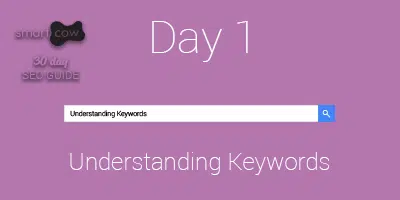Ranking keywords can be difficult to get the hang of, and lots of people are going about it the wrong way.
Common Keyword mistakes
The most common mistakes people tend to make are:
- Choosing keywords that are too broad
- Keywords with too much competition
- Keywords without enough traffic
- Keywords that don’t convert
- Trying to rank for one keyword at a time
The biggest mistake people tend to make is to try and rank a single keyword at a time, it is much easier and more profitable to do hundreds, even thousands at a time. The best way to get around this is instead of ranking for a single keyword, you’ll want to base your research around a keyword theme.
Using a keyword theme can solve many issues surrounded by ranking keywords. You can focus all your keywords into one general topic instead of trying to find the perfect keyword. If this is done correctly, the results can be fantastic.
It is easier if you get more specific with your keywords. For example, if your topic is football you’ll find it hard to rank for ‘Barclays Premier League’ but slightly easier for ‘Barclays Premier League 2014’ and even easier for ‘Best goals from Barclays Premier League 2014’.
keyword qualifier
The next step is getting to understand keyword qualifier.
Qualifiers are words that add specificity to keywords and define intent. They take many different forms.
- Time/Date: 2014, October, Afternoon
- Price/Quality: Cheap, Best, and Most Popular
- Intent: Buy, Shop, Find
- Location: Croydon, Outdoors, Online
The best thing to do is to find as many qualifiers as possible to suit your target audience. This is where keyword tools come into play. You can use any keyword tool you like, but some favourites include Wordstream, Keyword Spy, SpyFu and Google AdWords keyword planner.
Now that we have a basic keyword set, you need to find out if you can actually rank for your phrases. You have two basic methods of ranking the competition:
- Automated tools like the Keyword Difficulty Tool
- Eyeballing the Search Engine Response Page’s (SERPs)
There are some online tools that you can use, including Moz, either the paid subscription or even the free trial will allow you to use the Keyword Difficulty Tool which calculates, on a 100 point scale, a difficulty score for each individual keyword phrase you enter.
Keyword phrases in the 60-70+ range are typically competitive, while keywords in the 30-40 range might be considered low to moderately difficult.
To get a better idea of your own strengths, take the most competitive keyword you currently rank #1 or #2 for, and run it through the tool.
Even without automated tools, the best way to size up the competition is to eyeball the Keyword Research: Get Strategic with Competition.
SERPs. Run a search query (non-personalized) for your keywords and ask yourself the following questions:
Are the first few results optimised for the keyword?
Is the keyword in the title tag? In the URL? On the page?
What’s the Page and/or Domain Authority of the URL?
What’s the inbound anchor text?
Can you deliver a higher quality resource for this keyword?
You don’t actually need to be ranking at #1 for any of your words to earn traffic, but you should be comfortable cracking the top 5.
PPC agency Croydon
If you need a boost in search engine results pages (serps) or want to specifically target an audience segment then Pay Per Click advertising (PPC) can help your firm be found and to stand out in local search results against your competitors.
With many digital marketing tactics whether social media, new website design, search engine optimisation (SEO) or PPC management, we can help guide your online marketing.
We can provide a tailored digital marketing strategy for your business needs. Book a free consultation.
